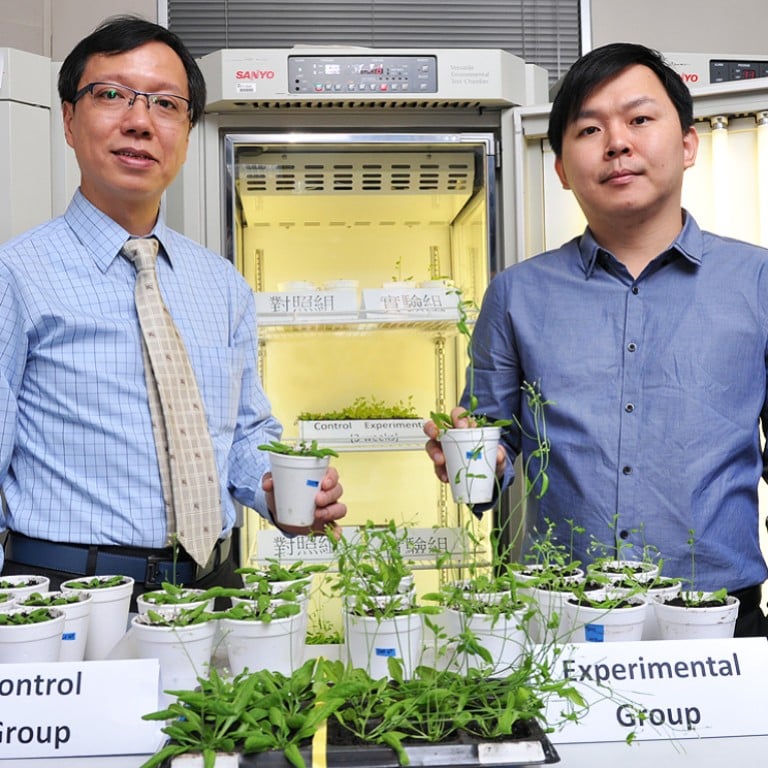
Scientists at HKU discover method for speeding up plant growth cycles which can help fight against world hunger and climate change
Enhancing gene found in most plants may have benefits for food production and climate change
University of Hong Kong botanists have discovered a new way to boost plant growth and seed yields in edible crops by enhancing a newly identified gene present in most known plants.
The scientists behind the three-year study said the breakthrough may help curb food shortages by increasing global food production and potentially mitigate climate change by making more crops available for use in biofuels.
Lab studies showed that by "overexpressing" the gene purple acid phosphatase 2 (AtPAP2) in thale cress plants, growth cycles could be sped up by two weeks and seed yields increased by 38 to 57 per cent in comparison with plants that did not undergo the process.

"Overexpressing the AtPAP2 gene imports certain proteins into the chloroplasts and mitochondria of plant cells, which enhances their activity," said Dr Wallace Lim Boon-leong of HKU's school of biological sciences, who led the research team. "As the speed of photosynthesis increases, higher leaf sugars are produced and this promotes [faster] growth."
Experiments on staple food crops, such as potatoes, by the university's partner in Germany found potato tuber yields increased by 43 to 60 per cent. Tests on soybeans by their partner in Guangzhou had mixed results.
The same tests were also successful in speeding up the growth of camelia sativa plants, a key biofuels crop, which Lim said was good news for the fight against climate change. Studies have shown camelina-based jet fuel reduces aircraft carbon emissions by 80 per cent, he said.
Lim admitted that since this was, in theory, a form of genetically modifying food, it would raise some concern among environmentalists and ethicists, but hoped the technology could be put to a commercial application.
But Greenpeace's Gloria Chang Wan-ki said her group was sceptical about any GM technology as it disrupted species biodiversity and the natural genetic makeup of ecosystems.
According to the United Nations, more than 800 million people in the world live in chronic hunger with World Food Day commemorated on October 16.

